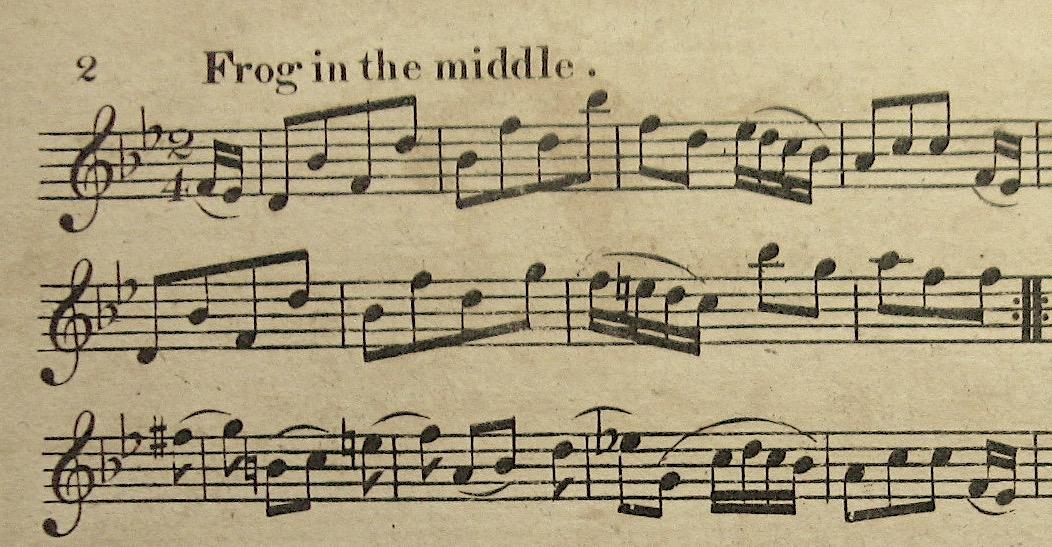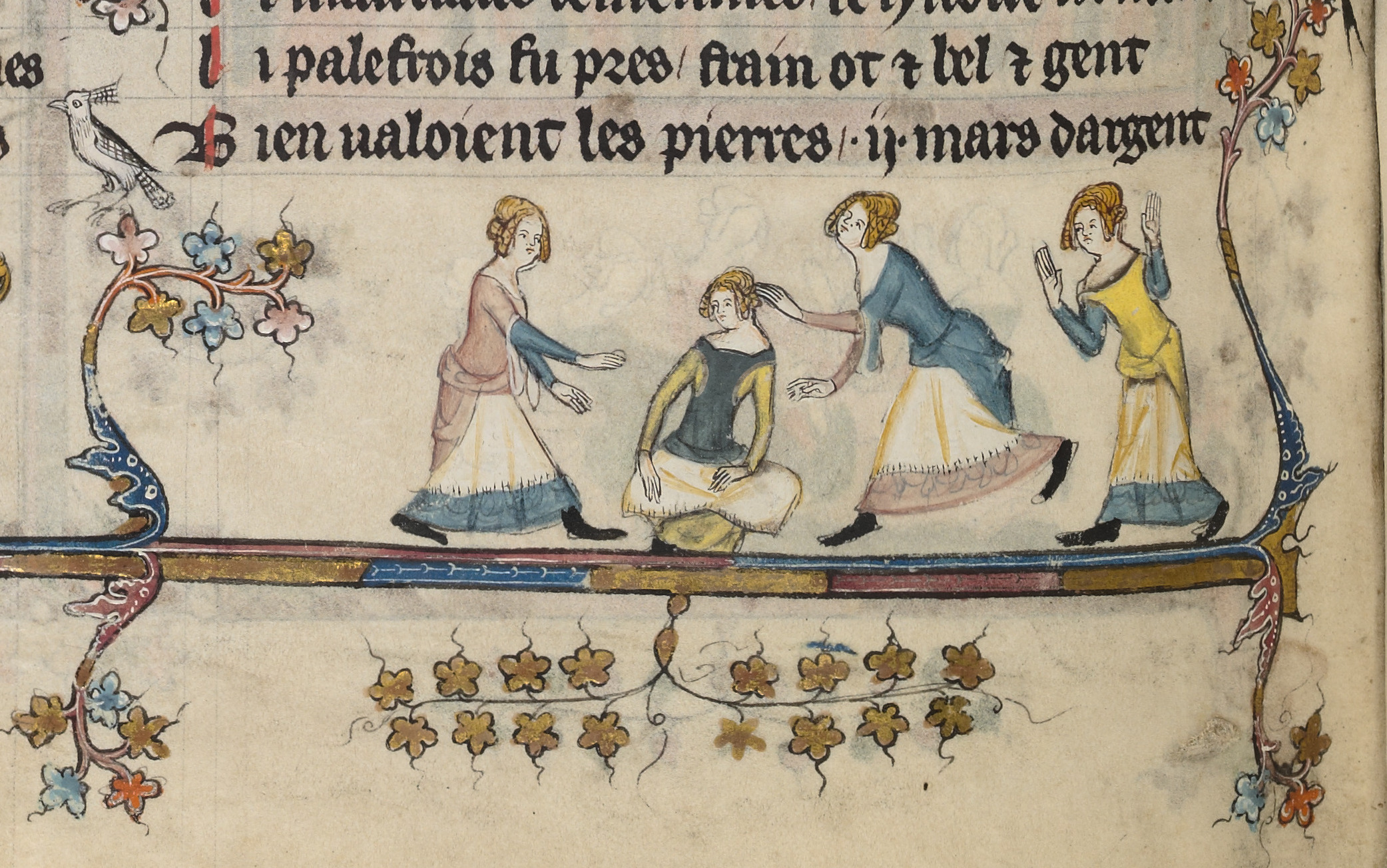
Le Sylphe, 24 Country Dances for the Year 1814 - Frog in the Middle
Le Sylphe. An Elegant Collection of Twenty Four Country Dances, the Figures by Mr. Wilson, for the Year 1814. Adapted for the German Flute, Violin, Flageolet or Oboe (London: Printed for Button & Whitaker, [1814])
-
Frog in the Middle
Image courtesy of the British Library Board, Music Collections a.9.aa.(2.), p. 2
To download mp3 files either click on the three dots or right-click on the player and choose the save/download option.
Recording Details:
Peter Moutoussis - horn
Wiebke Thormählen and Taisia Sandetcaia - violins
Henriette Poos - modern harp
Robert Percival - tambourine
Recorded at the Royal College of Music, London, 17 May 2021
Le Sylphe was a collection of country dances published annually by Button and Whitaker during the second decade of the nineteenth century. The score is in an oblong format and consists of a single melody line for a treble instrument, both of which were typical for country dance publications. The figures were provided by Thomas Wilson, who wrote extensively about English social dance during this period. A number of the dances, including Frog in the Middle, also appeared in Button and Whitaker’s L’Assemblée, or Forty Eight Elegant New Dances for the Year 1814, this time arranged for piano or harp. Various editions of Le Sylphe, like many country dance collections, referred to aspects of the Napoleonic wars through their choice of individual dance titles (Buurman and Cox Jensen 2018).
In Sports and Pastimes of the People of England, first published in 1801, Joseph Strutt mentioned an ancient Greek game by the name of chytrinda, which he equated with “frog in the middle”. He described this game as consisting of a single person sitting on the ground, “surrounded by his comrades, who pulled or buffeted him until he could catch one of them; which done, the person caught took his place, and was buffeted in like manner”. The illustration Strutt included of the game comes from a fourteenth-century illustrated manuscript at the Bodleian Library, in which three standing figures and one seated can be seen at the bottom of the page. Strutt’s work was reprinted several times throughout the nineteenth century and when “frog in the middle” appeared in Kate Greenaway’s Book of Games in 1889, it incorporated dancing and singing.
The arrangement for horn, two violins, harp and tambourine is derived from a notice placed in the Morning Post and Gazetteer on 9 March 1801 by a Mr Allen, who was advertising his regular subscription assemblies. He advised that “None but Ladies of Character admitted” and noted that “The Band, consisting of a Harp, two Violins and a Tambourin or Horn, are the best Musicians that can be had”. An advertisement in the same newspaper on 17 March indicates that Allen “has engaged as principal Violin for all his evenings Mr. Mackintosh, from Edinburgh, whose animating notes are the life and soul of the Scotch Nobility’s private dances, and who is esteemed the first performer in England for strathspeys and reels. Mr. Wippart [sic] plays the Harp.” This may have been Robert Mackintosh, a prominent Scottish composer and violinist who published several collections of reels and strathspeys, or his son Abraham Mackintosh, also a violinist and composer as well as a dancing master, who relocated to Newcastle in 1797 (Johnson 2001). “Mr Wippart” is likely to have been Johann (John) Michael Weippert, part of a family of harpists and dance band leaders (Parkinson 1993).
Further Reading:
Buurman, Erica, and Oskar Cox Jensen. 2018. “Dancing the “Waterloo Waltz”: Commemorations of the Hundred Days – Parallels in British Social Dance and Song.” In Napoleon’s Hundred Days and the Politics of Legitimacy, edited by Katherine Astbury and Mark Philp, 209-232. Basingstoke: Palgrave Macmillan.
Johnson, David. 2001. “Mackintosh, Robert.” In Grove Music Online. Accessed 1 July 2021.
Parkinson, John A. 1993. “A Knot of Weipperts.” In Sundry Sorts of Music Books: Essays on The British Library Collections. Presented to O.W. Neighbour on his 70th Birthday, edited by Chris Banks, Arthur Searle and Malcolm Turner, 274-281. London: The British Library.

Extract showing the game Strutt labelled as chytrinda from Bodleian Library MS. Bodl. 264, fol. 97v, 1338-1410. Photo: © Bodleian Libraries, University of Oxford. CC-BY-NC 4.0.
